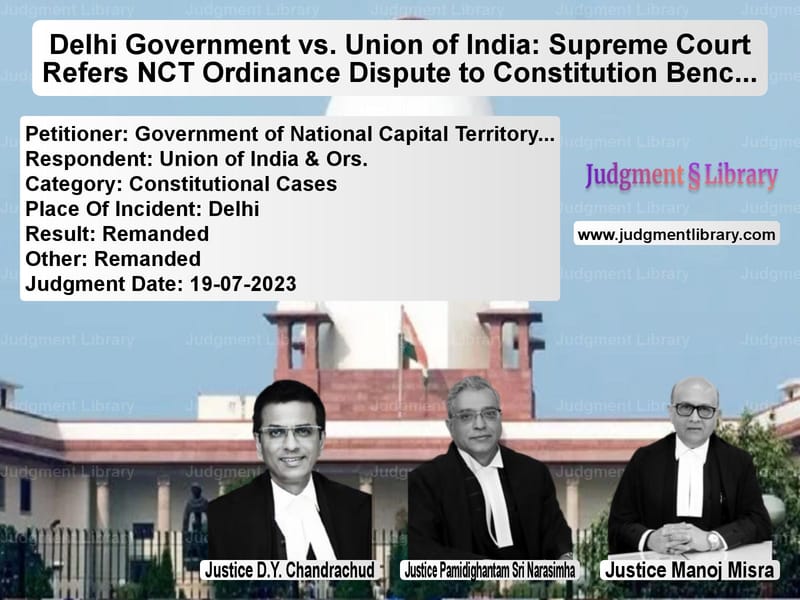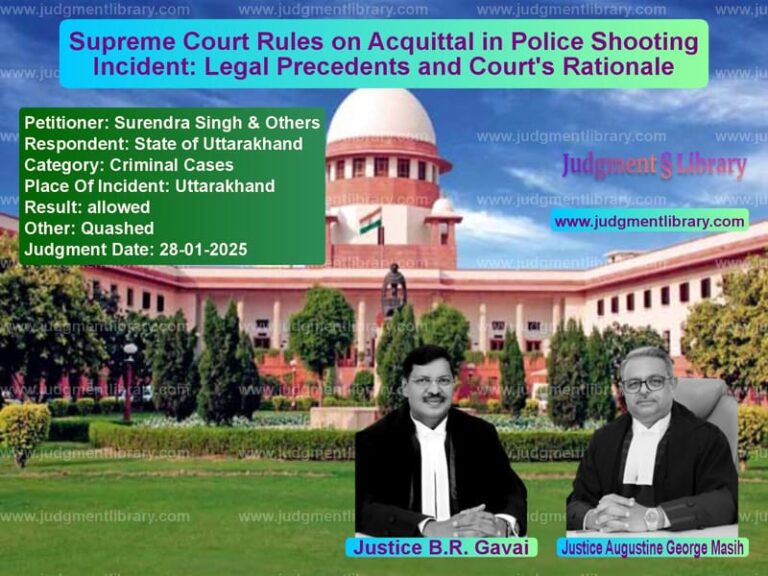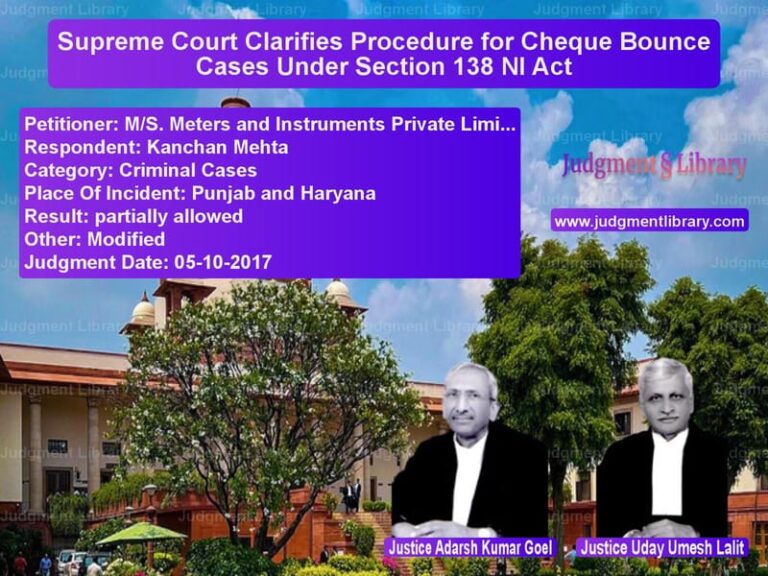Delhi Government vs. Union of India: Supreme Court Refers NCT Ordinance Dispute to Constitution Bench
The ongoing tussle between the Government of the National Capital Territory of Delhi (GNCTD) and the Union of India over administrative control has once again reached the Supreme Court. The controversy revolves around the Government of National Capital Territory of Delhi (Amendment) Ordinance, 2023, which was promulgated by the President eight days after the Supreme Court’s Constitution Bench judgment in May 2023. The Supreme Court has now referred the matter to a larger Constitution Bench, raising fundamental questions about the governance of Delhi.
Background of the Case
The Supreme Court’s Constitution Bench judgment in May 2023 had affirmed the powers of the elected Delhi Government over services, except in matters related to public order, police, and land (Entries 1, 2, and 18 of List II). However, on May 19, 2023, the Union Government promulgated the NCT Ordinance, which altered the governance structure of Delhi. The ordinance gave overriding powers to the Lieutenant Governor (LG) over services and established the National Capital Civil Service Authority (NCCSA) to regulate appointments, transfers, and postings.
Read also: https://judgmentlibrary.com/supreme-court-strikes-down-extension-of-ed-directors-tenure-as-unlawful/
The Delhi Government challenged the ordinance under Article 32 of the Constitution, arguing that it violated the principles of democratic governance and undermined the power of the elected government.
Key Provisions of the NCT Ordinance
- Exclusion of Legislative Power: The ordinance inserted Section 3A in the GNCTD Act, 1991, which stated that Delhi’s Legislative Assembly could not legislate on Entry 41 (State Public Services) of the State List. This effectively amended Article 239-AA of the Constitution.
- National Capital Civil Service Authority (NCCSA): The ordinance created a three-member body, comprising:
- The Chief Minister of Delhi
- The Chief Secretary
- The Principal Home Secretary
- Decisions in the NCCSA are taken by a majority vote, giving bureaucrats more power over the Chief Minister.
- Power of the Lieutenant Governor (LG): The LG was given the authority to override NCCSA recommendations, making the elected government’s role ineffective.
- Power of the President: The ordinance gave the President the authority to establish statutory bodies in Delhi and appoint officials, reducing Delhi’s autonomy.
Delhi Government’s Arguments
The Delhi Government, represented by Abhishek Manu Singhvi, argued:
- The ordinance violates the principles of democracy by stripping the elected government of its powers.
- The ordinance contradicts the Supreme Court’s 2023 Constitution Bench judgment, which recognized the Delhi Government’s authority over services.
- It disrupts the triple chain of accountability, which ensures bureaucratic accountability to the elected government, the legislature, and the people.
- The President’s power to issue ordinances under Article 123 should not be misused in non-urgent matters.
- The ordinance should be stayed as it disrupts governance, leading to administrative paralysis.
Union Government’s Arguments
The Union Government, represented by Solicitor General Tushar Mehta, argued:
- Delhi is not a full-fledged state, and the Union Government has ultimate control over its administration.
- The ordinance was passed under Article 239-AA(7)(b), which allows Parliament to amend the governance structure of Delhi.
- The Supreme Court’s May 2023 judgment itself recognized Parliament’s authority to legislate on services in Delhi.
- The creation of the National Capital Civil Service Authority is a legitimate way to ensure bureaucratic stability.
Supreme Court’s Observations
The Supreme Court, led by Chief Justice D.Y. Chandrachud, made several key observations:
- The issue requires a detailed constitutional interpretation as it involves the governance framework of Delhi.
- The ordinance significantly alters the balance of power between the Delhi Government and the Union Government.
- The exclusion of Entry 41 (State Public Services) from Delhi’s legislative competence effectively amends Article 239-AA, which must be examined.
- The power of Parliament under Article 239-AA(7) does not mean it can override democratic governance.
- The Court referred the case to a Constitution Bench to decide:
- The extent of Parliament’s power under Article 239-AA(7).
- Whether Parliament can alter or abrogate the governance framework of Delhi.
Implications of the Judgment
The Supreme Court’s referral of the case to a Constitution Bench signals the significance of the dispute. The ruling will determine:
- Whether Parliament can unilaterally alter the governance structure of Delhi.
- The extent of the Lieutenant Governor’s powers in administrative matters.
- The rights of an elected government in a Union Territory.
- The future of federalism and democracy in Delhi’s governance.
Until the Constitution Bench delivers its verdict, the ordinance remains in effect, continuing the power struggle between Delhi’s elected government and the Union Government.
Petitioner Name: Government of National Capital Territory of Delhi.Respondent Name: Union of India & Ors..Judgment By: Justice D.Y. Chandrachud, Justice Pamidighantam Sri Narasimha, Justice Manoj Misra.Place Of Incident: Delhi.Judgment Date: 19-07-2023.
Don’t miss out on the full details! Download the complete judgment in PDF format below and gain valuable insights instantly!
Download Judgment: government-of-nation-vs-union-of-india-&-ors-supreme-court-of-india-judgment-dated-19-07-2023.pdf
Directly Download Judgment: Directly download this Judgment
See all petitions in Constitution Interpretation
See all petitions in Legislative Powers
See all petitions in Separation of Powers
See all petitions in Judgment by Dhananjaya Y Chandrachud
See all petitions in Judgment by P.S. Narasimha
See all petitions in Judgment by Manoj Misra
See all petitions in Remanded
See all petitions in Remanded
See all petitions in supreme court of India judgments July 2023
See all petitions in 2023 judgments
See all posts in Constitutional Cases Category
See all allowed petitions in Constitutional Cases Category
See all Dismissed petitions in Constitutional Cases Category
See all partially allowed petitions in Constitutional Cases Category







